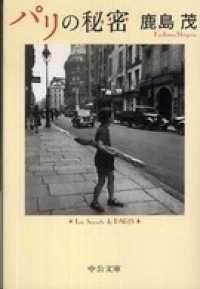Full Description
This open access book presents groundbreaking research, offering new empirical findings, showcasing a range of different methods, and advancing theoretical perspectives relating to science communication and trust.
-

- 電子書籍
- パリの秘密 中公文庫



